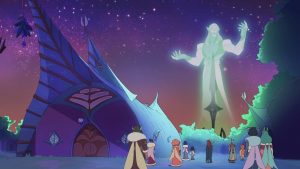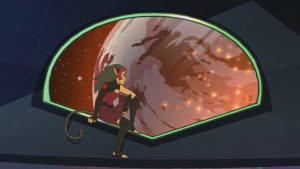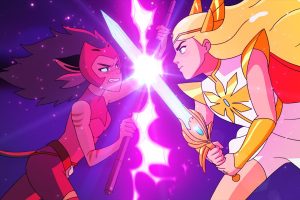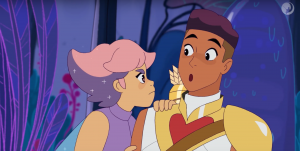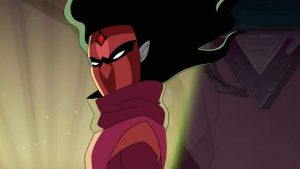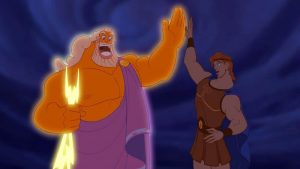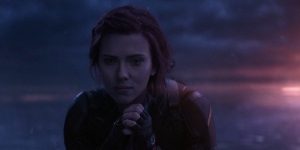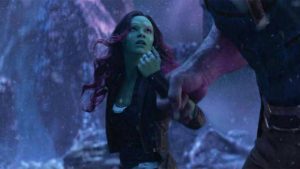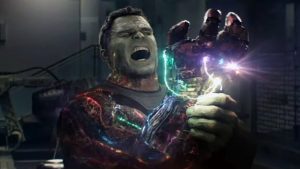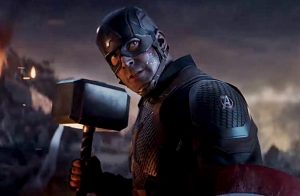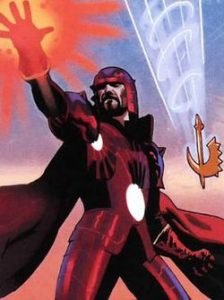SPOILERS FOR AGENTS OF S.H.I.E.L.D. AHEAD!
Thanks to Hurricane Isaias and a poorly-timed power outage, this review is several days late – but still just in time to get out before the Agents Of S.H.I.E.L.D. finale this Wednesday: a hotly-anticipated two-hour long farewell event that will bring seven seasons worth of intricate storytelling to a close…and hopefully tease further adventures with certain characters in the Marvel Cinematic Universe down the line. Fingers crossed.
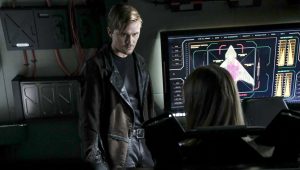
But before we start looking ahead, let’s break down everything that went on last Wednesday, in the penultimate episode of Agents Of S.H.I.E.L.D. – the episode serves mostly as finale set-up, moving characters into place like chess-pieces ready for battle, but it still manages to get a lot done: particularly when it comes to strengthening the relationship dynamics between our main cast. Daisy Johnson (Chloe Bennet) and Daniel Sousa (Enver Gjokaj) have a chance to clumsily – but adorably – rekindle the romance they started during the turbulent time-loops a week or two ago, while Daisy’s long-lost evil sister Kora (Dianne Loan) establishes a fragile bond with both Daisy and Melinda May (Ming-Na Wen), which quickly breaks down after she learns of the death of her mother, Jiaying – an atrocious act committed by Kora’s partner-in-crime, Nathaniel Malick (Thomas E. Sullivan), which she nonetheless blames on S.H.I.E.L.D. because Malick is apparently so precious to her that by the end of the episode they’re locked in a passionate embrace, kissing while Chronicom warships blow S.H.I.E.L.D. bases to smithereens from space. There’s a lot to unpack here.
Obviously the most urgent issue at hand is the captive state of Jemma Simmons (Elizabeth Henstridge), whom Nathaniel Malick and his crew of mercenaries snatched away from S.H.I.E.L.D. headquarters week before last, with the intention of probing her memories and discovering the location of Malick and the Chronicoms’ arch-nemesis, Leopold Fitz (Iain De Caestecker, appearing only in flashback sequences). By the end of the episode, despite Malick doing everything in his power to ransack Simmons’ mind and emotionally torture her, Fitz’s locations remains a mystery. Add onto that the fact that Simmons apparently doesn’t even remember who Fitz is anymore, and we have ourselves a big problem: the Fitzsimmons ship, which I listed as the most romantic coupling in the Marvel universe, is in real danger of not becoming endgame. Fitzsimmons is known for the emotional trauma it inflicts on all of us, but this episode really outdid itself – through flashbacks, we bore witness to the moment Simmons had to say goodbye to Fitz, screaming through her tears that she didn’t want to forget him or the life they had together. Would it be possible for her to share her memory-suppression technology with the rest of us, so we too can forget that painful scene ever happened?
Then there’s the question of how to rescue Simmons from the Zephyr One, which Malick hijacked and flew straight into the cold void of outer space. Deke Shaw (Jeff Ward) makes a half-hearted attempt that goes wrong very quickly, and gets tortured by Malick alongside Simmons. The last we saw of him, he was alive, but bruised, bloodied, and very confused. Thankfully, Daisy, Daniel Sousa and S.H.I.E.L.D. director Al “Mack” Mackenzie (Henry Simmons) are on their way to the Zephyr One‘s coordinates in their own spacecraft, and they share the most memorable scenes in the episode: Mack tries to play matchmaker for the awkward couple (I wasn’t too fond of them before, but Mack’s teasing – paired with his very serious warning that if Sousa does anything to hurt Daisy, he will face the wrath of the entire S.H.I.E.L.D. team – did a lot to warm me up to the unconventional pairing), and Daniel just can’t get over the fact that Daisy’s superhero nickname is “Quake”, a moniker he finds laughably ridiculous. Personally, I’ve always found “Quake” to be a very cool and fitting name, and I wish Daisy used it more often, but I will admit that Daniel’s suggestion to Daisy that she get a giant “Q” stamped on her utility belt (poor Daniel, with his outdated notions of superhero costuming!) was extremely funny.

On the ground, Kora spends most of the time locked away in a S.H.I.E.L.D. holding cell at the Lighthouse, until a confrontation with Melinda May leads to her unleashing her…weird golden glowing fist-punch thing…instantly knocking out all the electricity at the base (too soon, Marvel, too soon), including the computer system’s firewalls – in turn allowing the disembodied Chronicom Sibyl to creep into the Lighthouse’s computer systems, where she starts wreaking havoc immediately. Luckily, Phil Coulson (Clark Gregg) is himself mostly robotic at this point, and spent a good deal of time trapped inside a computer in the 1980’s, giving him an acute knowledge of coding that keeps him…well, not exactly one step ahead of Sibyl, but maybe, like, just one or two steps behind her? He doesn’t manage to stop her from turning every other S.H.I.E.L.D. base around the globe into a heap of burning rubble, but at least he was able to figure out her evil plan a few seconds before she actually went through with it. That’s got to count for something…right?
With the power out, Kora also obtains her freedom. Despite Melinda May’s best efforts to turn the homicidal Inhuman into a force for good, Kora simply doesn’t want to change. She does genuinely offer her services to the S.H.I.E.L.D. team, but her offer involves murdering a baby (though, that baby is the future Grant Ward, which doesn’t make it right but also doesn’t make it entirely bad), so Coulson turns it down. Enraged, Kora escapes back to Malick, and that’s where we get the whole kissing-while-the-world-burns nonsense. Honestly, it’s hard to visualize an outcome where Kora is redeemed by the end of this: her treachery hasn’t earned her any love from the Agents Of S.H.I.E.L.D., and Daisy is already hell-bent on erasing her from history. But, according to Kora, the Agents Of S.H.I.E.L.D. are already living in an alternate timeline and the only way to make things right is to start killing off the people who shouldn’t be alive in the present day – cut to the time-displaced Daniel Sousa, who is definitely treading on very thin ice heading into the finale. Will he, like most of Daisy’s previous love interests, meet a horrible fate, or could he be the lucky one that gets away?
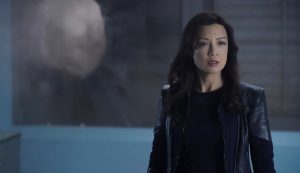
Heading into the finale, the world is currently under attack from the Chronicoms, who have an entire fleet of warships that are just occupying the earth’s atmosphere; Daisy, Mack and Daniel are about to collide violently with said fleet; Nathaniel Malick is no longer interested in finding Fitz, and has instead generously offered Simmons and Deke first-row seats to the end of the world; Kora is on her own, having alienated everyone who tried to care about her; Coulson, May and “Yo-Yo” Rodriguez (Natalia Cordova-Buckley) are stuck at the Lighthouse, which is probably going to be the Chronicoms’ next target; and Jiaying is still dead, which is a disappointment.
I have no idea what’s coming next. There are hints and rumors going around that some kind of MCU crossover will happen in the finale, with the Agents Of S.H.I.E.L.D. possibly setting the timeline right only to get snapped out of existence by Thanos, and it’s entirely possible there are still some major cameos planned for this last episode. Fitz is going to turn up somewhere, somehow – I’m hoping and praying he’s actually on Nick Fury’s secret S.W.O.R.D. base from the Spider-Man: Far From Home post-credits scene, but I’m not betting on it.
It’s been a wild ride, and I can’t wait to reach the end of the road. I’m also extremely grateful that my power was restored so I’ll be able to watch the finale and not wait almost a week to review it. Sorry about the delay, dear readers.
Episode Rating: 8.9/10

